This viewpoint is part of Foresight Africa 2024.
Washington can and should do more to prevent coups before they happen, and even in the authoritarian regimes, it should seek to strengthen democratic forces and moderate power abuses.
As coups d’etat have swept West Africa and may expand into the Great Lakes Region and East Africa, U.S. policy responses have struggled. Economic sanctions and diplomatic isolation by the West have proven insufficient to reverse the power takeovers. With U.S. foreign policy focused primarily on great power competition with China and Russia and motivated by a strong desire to extricate the United States from internal conflicts, the United States does not have the will to reverse the coups militarily. Washington will thus increasingly face tough dilemmas of upholding its democratic commitments while losing strategic and economic access or accommodating in some ways to authoritarian governments. Only once the current tilt toward authoritarianism proves itself unable to deliver better security and governance will the United States have a strong capacity to encourage democratic reforms in countries that have fallen into authoritarian hands. But Washington can and should do more to prevent coups before they happen, and even in the authoritarian regimes, it should seek to strengthen democratic forces and moderate power abuses.
From Mali in 2020 to Niger and Gabon in 2023, overthrows of power have been driven predominantly by internal issues, including poor civilian control over the military. The internal governance and institutional deficiencies have often taken place amidst unabating jihadi militancy despite U.S. and other Western military assistance. Moreover, across Africa, citizens have been deeply frustrated with the lack of economic opportunities, high unemployment, and poor public services, all compounded by the COVID-19 pandemic, as well as decades-long corruption, nepotism, and parochialism. The cry that one can’t eat elections or democracy has become common across the continent. And in various African countries, democracy has merely consisted of (troubled) elections overlaying poor governance.
The coups in West Africa, however, also reflect the current zeitgeist and precedent—a global tilt toward rightist politics and the ability of West Africa’s putschists to get away with the coups. Their countries may have become poorer under resulting Western sanctions, but China’s and Russia’s ready embrace of the authoritarian regimes has provided a cushion for their hold onto power. Thus, while the economic sanctions of the Economic Community of West African Countries (ECOWAS) have compounded the hardship of the already struggling people of Niger (and created blowback across borders, including in Nigeria), they have not restored democracy. And ECOWAS’ military interventions now ring hollow and embarrassing.
Russia has also provided a military cushion—in the form of direct Russian military assistance, such as in Niger after the 2023 coup, or through its proxy the Wagner Group, such as in Mali. The Russian advisors and mercenaries are not a silver bullet against jihadists: In Mali, the security situation has deteriorated significantly in 2023, with the jihadists threatening to take Timbuktu, Gao, and Menaka. In 2024, the country may see the establishment of an ISIS-linked and a separate al-Qaeda-linked Islamist “protostates.” But despite their counterinsurgency brutality and ineffectiveness, the Russian forces also serve as a praetorian guard to those in power.
U.S. tools to counter these negative trends have become blunt. For the sake of counterterrorism operations and local assistance in stemming refugee flows, the United States and Western Europe had for years closed their eyes to the election-covered misgovernance in countries like Niger, Mali, and Chad. When they could have pushed hard for better governance, they did not. Now, countering the coups often means losing access as the United States is legally-mandated to sever all non-humanitarian assistance to countries where it identifies a coup d’etat.
Unfortunately, that means that to preserve at least its key interests in strategic countries where coups have taken place or may yet–such as important counterterrorism bases, strategic economic resources, or a platform for countering Russia and China, the United States will need to be inconsistent in when it calls a coup a coup. Or the United States may have to deploy a national security override of the legislative restrictions. With good reason, the Biden administration tried to be creative with its wording after the coup in Niger in August 2023. Hypocrisy carries costs for U.S. foreign policy. But in cases of important interests, it may be necessary to pay this price.
Nonetheless, in engaging with both authoritarian governments or electorally-legitimated ones, Washington should be willing to push for better governance. In more permissive environments, it should encourage stronger civilian control measures through tools beyond giving African officers human rights and civ-mil training. The United States should develop tracking mechanisms and intelligence assets to detect coup preparation and provide early warning to governing authorities.
But Washington should also get far tougher with elected officials about checks and balances, truly free and representative elections, institutional and civil service strengthening, and independent empowered justice systems. When the elected government’s inclinations are parochial, Washington should push against them, encouraging instead economic and social policies that generate resources and opportunities for the African people.
The Brookings Institution is committed to quality, independence, and impact.
We are supported by a diverse array of funders. In line with our values and policies, each Brookings publication represents the sole views of its author(s).

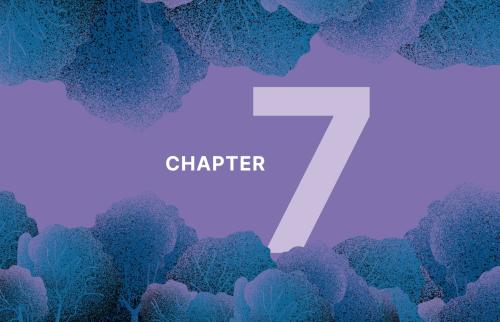
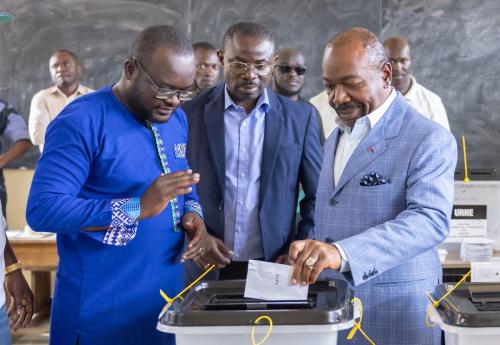
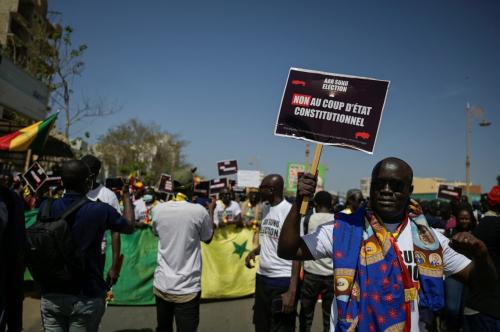
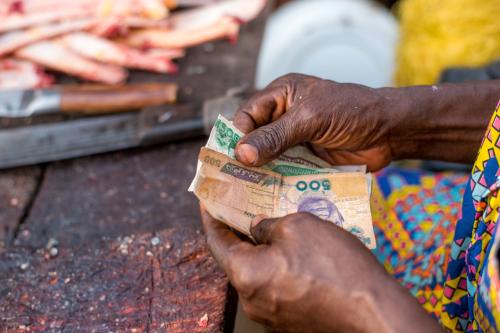

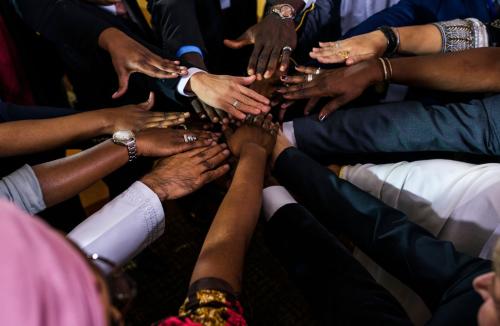
Commentary
Addressing and preventing coups in Africa: What the United States can do
August 21, 2024